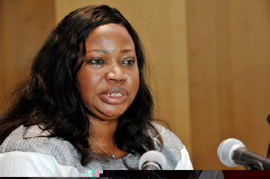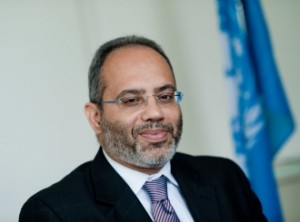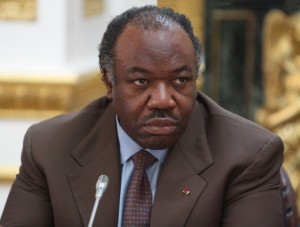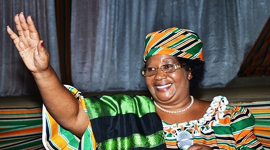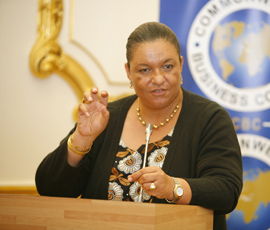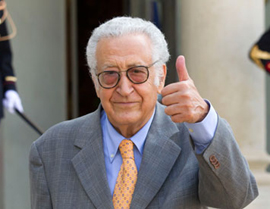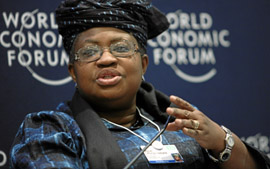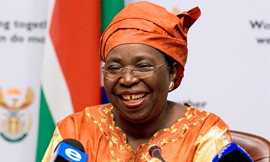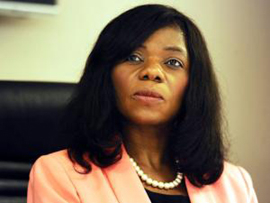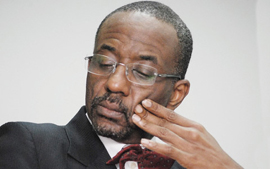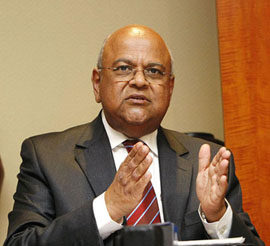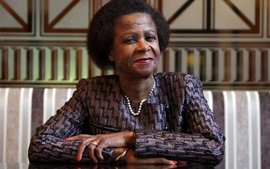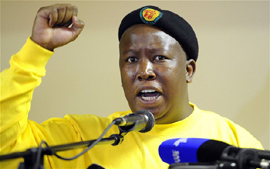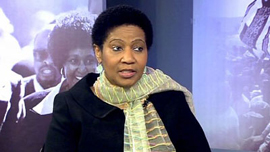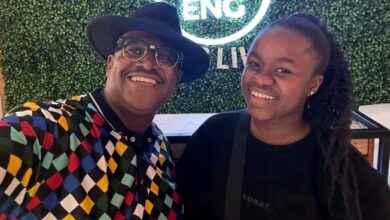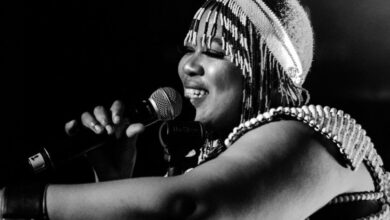Most influential Africans in politics
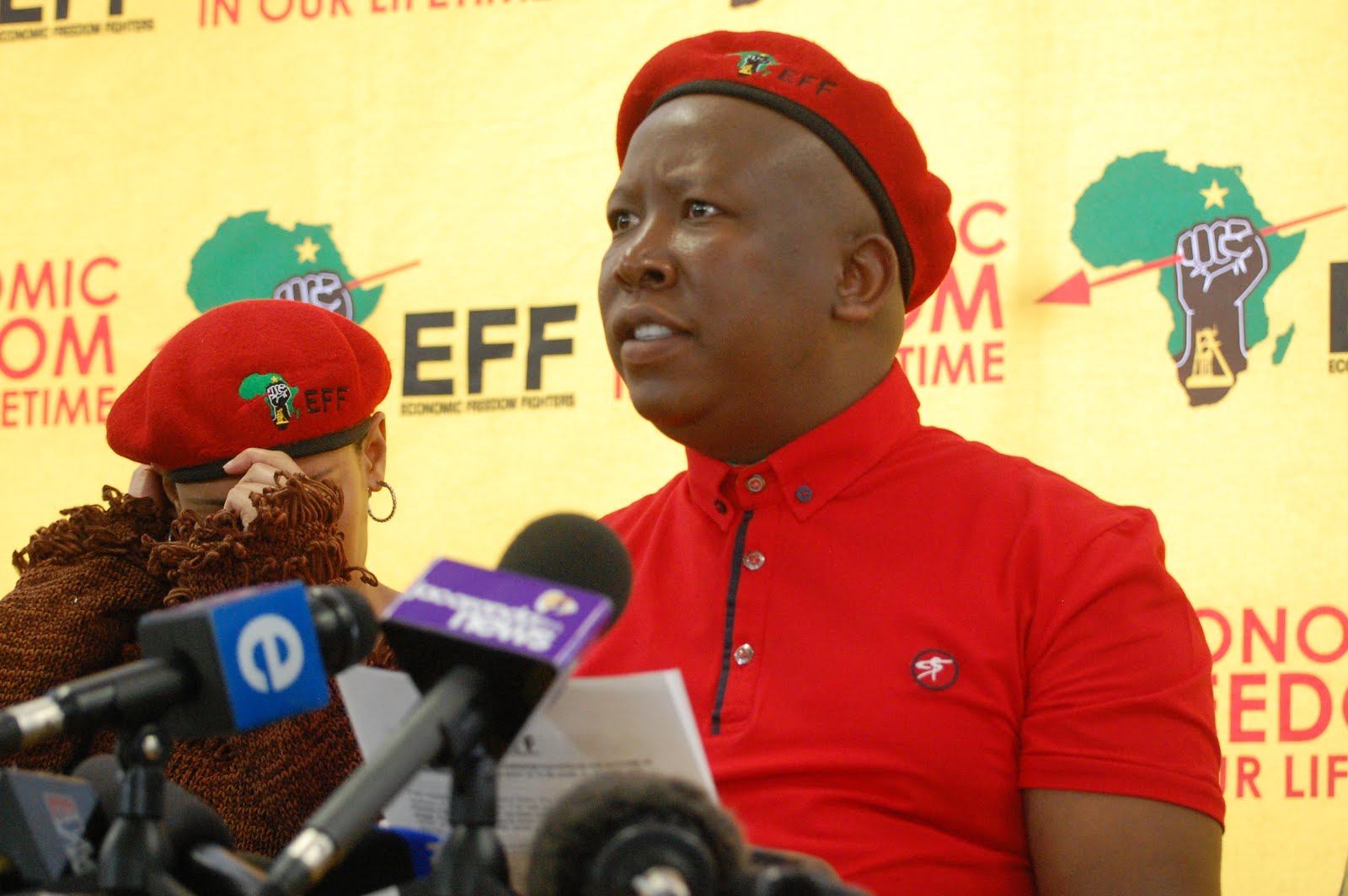
The following list of people listed by New African publication are the top Africans who’s opinions and actions have managed to influence people across the African continent or worldwide.
a) Uhuru Kenyatta, President – Kenya
Uhuru has been lauded for strong leadership as he stood with fellow leaders and the people of his country to fight the terror attack at the Westgate Mall in September. He stood courageous in the face of personal and national loss and urged the country to stay strong as the security forces executed the rescue operation. He was also lauded for bringing in a young and dynamic team, although some say this has so far yielded little change and has somewhat backfired. The world’s eyes are on Kenya and on him.
b) Fatou Bensouda, ICC Chief Prosecutor
Having inherited a very difficult, high profile position as Chief Prosecutor at the International Criminal Court (ICC) in the Hague from the brash and self-centred Luis Moreno Ocampo, it is the task of softly spoken Bensouda to bring respect and credibility to this highly criticized institution. Bensouda is a Gambian whose extensive portfolio as a lawmaker has equipped her to take on the role with confidence, though that is not to say she has any of the arrogance of her predecessor.
c) Carlos Lopes, Exec. Sec. Uneca – Guinea Bissau
This Guinea-Bissauan is emerging as one of Africa’s thought leaders. Taking an intellectual and pragmatic approach to problem solving as the head of the United Nations Economic Commission for Africa, Lopes is responsible for ensuring the institution becomes a key pillar in Africa’s development policies. His views on African policy are solicited by many leaders, inside and outside of Africa. As a respected development and strategic specialist who has spent a number of years working closely with, and contributing to research on issues of governance and development, his tenure at Uneca is always going to attract watchful eyes.
d) Ali Bongo, President – Gabon
Arguably, Ali Bongo remains the strongest reformer in French-speaking Africa and the most progressive leader in Central Africa. Admittedly, his country has considerable oil wealth and with a relatively small population of 1.6m, it should be easier to manage than most. Yet Bongo has been relentless about radically transforming the economy and has not been afraid to take on the well-entrenched vested interest groups in his country. He is known for his single-minded approach to business and for getting things done. And his openness to the international community, as well as his strong position on climate change, has strengthened his position as a regional and global leader.
e) Joyce Banda, President – Malawi
Joyce Banda has possibly received the most column inches of any president in the past year. She has positioned herself as a leader with zero tolerance on corruption, bad governance and government profligacy. To prove a point, she slashed her salary by 30 per cent and sold the presidential jet soon after taking office. The headline-grabbing measures won her many plaudits. But allegations of mounting corruption in her government and inner circle, threaten her chances at the next elections.
f) Hanna Tetteh, Foreign Minister – Ghana
A barrister by profession, she has become known as one of the most astute and efficient politicians of her time. She has been active in politics since 2000, and in 2013 she took up her post as Minister of Foreign Affairs after President Mahama appointed her with parliamentary approval. Humble yet forthright and persuasive, she is known as a great communicator who engages with her public at all levels. She joins the ranks of a growing number of women who, given the opportunity, are showing how it should be done.
g) Lakhdar Brahimi, Special Envoy, UN – Algeria
Lakhdar Brahimi is known as one of the foremost experts in peacekeeping and post-conflict resolution. Since 2012, this Algerian diplomat has been brought out of retirement to be the United Nations and Arab League Special Envoy to Syria. Brahimi has had the challenging task this year of bringing all the stakeholders to the table on the Syrian conflict and finding a resolution to the deteriorating situation. His relentless pursuit of solutions has seen him gain significant success in conflict management, for instance in Lebanon and Haiti. He is determined to find a solution to the conflict in Syria and ignores comments that the task is becoming increasingly difficult to manage.
h) Ngozi Okonjo-Iweala, Finance Minister – Nigeria
Dr Ngozi Okonjo- Iweala is Nigeria’s Minister of Finance and Economic Planning, and a global superstar. Like the title of her book, she is known for “Reforming the Unreformable”, despite the many threats and other obstacles she faces on a daily basis. She is an authority on all issues African, and will increasingly be in the limelight in 2014, as Nigeria hosts a number of international forums. She is considered to be one of the most powerful women in the world, a spokesperson for Africa and a leader who many Nigerians rest their hopes on.
i) Nkosazana Dlamini-Zuma, Chair, AU – South Africa
Dlamini-Zuma has come to the African Union with a big reputation and an even bigger task. Hence being put on the spot to transform the institution into what many believe it ought to be: bold, effective and influential. Her soft-spoken nature must not be mistaken for her being a pushover. During the 50th anniversary conference of the AU, she outraged the organisation’s Western partners (and majority funders) by refusing them entry to an enforced closed session.
j) Thabo Mbeki, Ex-President – South Africa
The supreme intellectual and champion of African Renaissance, Thabo Mbeki’s ambition for Africa’s rebirth did not end with his removal from office in 2008. He continues to champion the cause for the transformation of Africa, and is hailed as one of Africa’s foremost thinkers. His skills are being used widely, and today he is one of the most outspoken leaders on the direction Africa should be taking, especially on international matters. His influence and status, if anything, continue to grow.
k) Thuli Madonsela, Public Protector – South Africa
One word has increasingly been used to describe Thuli Madonsela – fearless. The respected online news media platform, Daily Maverick had this to say about her in 2012 – “It should really be no surprise that [she] has made many enemies during her term in office. She has gone knocking on the doors of many high-ranking people in government and is not scared off easily…as Africa’s anti-corruption super-heroine.” She has ruffled feathers and even succeeded in getting senior political figures quaking in their boots. Cue – the Nkandla report into the funding of President Jacob Zuma’s residence, which has made her a very popular figure across the board in South Africa.
l) Sanusi Lamido Sanusi, Governor, CBN – Nigeria
Since 2009, when he was appointed Governor of the Central Bank of Nigeria, Sanusi Lamido Sanusi has made waves globally, earning a reputation as an astute and firm manager. His words move markets, and he can be credited for keeping a stable Naira and single-digit inflation in his country, though some analysts have questioned at what cost. Though his term comes to an end in 2014, he will continue to be one of Nigeria’s most-listened-to commentators and analysts. Speaking to our sister magazine African Business recently, he said he sees his role after leaving office as being that of a “public intellectual”, while his biggest regret would be the inability to deliver greater wealth redistribution, something he is hoping to put his mind and energy to when he departs next year.
m) Lindiwe Mazibuko, Opposition Politician – SA
Lindiwe Mazibuko, who made history when she dared to become the first black leader of the opposition in the South African parliament in October 2011, remains a no-nonsense politician, unafraid to speak her mind in the face of the dominant ANC. Mazibuko continues to cause waves in South African politics as an MP for North Durban. Mazibuko became the first non-white woman in one of the most senior positions within the opposition Democratic Alliance, led by Helen Zille.
n) Pravin Gordhan, Finance Minister
As the Minister of Finance, Pravin Gordhan holds one of the most important offices in South Africa, and is tasked with managing South Africa’s money matters. In other words, he holds the South African purse strings and world markets diligently monitor how he steers Africa’s largest economy, particularly so through turbulent times. Known to favour sound money management, he has strict fiscal discipline and is not frightened to keep the fiscal markets afloat at all times, even when populist reforms are being called for, as next year’s general elections come knocking.
o) Mamphela Ramphele, Opposition Politician – South Africa
The leader of South Africa’s newest political party, Agang, is no stranger to politics. Mamphela Ramphele has had a long history in South African politics stretching as far back to her schooldays, where she participated in protests against the apartheid regime. Probably her most known political activity is when she worked and became intimate with Steve Biko, the South African freedom fighter who was assassinated in the late 1970s. Even though she was politically vocal she never actually belonged to any political party. She shocked many, when she wrote an open letter to the public about taking a break from politics.
p)Julius Malema, Opposition Politician – South Africa
The embattled former president of the ANC Youth League, Julius Malema seems indestructible. After his expulsion from the ruling party and his relentless efforts to discredit the Zuma-led government, Malema is back as the Commander-in-Chief of a new political party: the Economic Freedom Fighters (EFF), which is founded on socialist ideals, fighting for equal distribution of wealth and enjoying grassroots support, especially among the youth. As expected, he made it into Parliament in the 2014 elections.
q) Mohammed Morsi, Former President – Egypt
Mohammed Morsi may be behind bars but all eyes will be on his trial. Despite the resentment he caused whilst in office, and being accused of incompetence and mismanagement of economic affairs, Morsi’s influence resonates, not only in Egypt but outside his country. Islamists elsewhere will be following closely what happens to the man, which may determine the course of action they will be willing to take, thus affecting stability across the region. With just under 2 million Twitter followers, he is the most followed leader in Africa.
r) Phumzile Mlambo-Ngcuka, E.D., UN – South Africa
Phumzile Mlambo-Ngcuka is the new Executive Director of UN Women. She takes the UN role as the Millennium Development Goals near their end and the post-development agenda after 2015 is being earnestly debated. The former deputy president of South Africa heads the UN body, whose aim is to “accelerate progress in meeting the needs of women and girls worldwide and significantly boost UN efforts to promote gender equality, expand opportunity, and tackle discrimination.” Her role is therefore being closely watched.
s) Taaufik Médiène, Head of the Secret Service – Algeria
Taoufik Médiène is the head of the Algerian secret service, a position he has held for over 20 years. He is undeniably one of the country’s strong men. With the ongoing terrorist threat in North Africa and the Sahel, this KGB-trained lieutenant is regularly consulted and sought after by the West and a “key ally on the global war on terror”. As such he is instrumental in shaping a strategy to ensure that the region does not become engulfed in a sustained period of instability due to Islamic terrorism. As you would expect from the head of the secret services, nothing much is public. Behind the scenes however, he will be influential in designing the political architecture of the country with elections looming next year.


